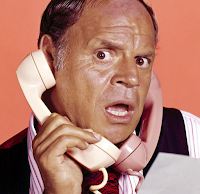Some will tell you that a cat is the ultimate house animal, better than a dog, a guinea pig, or a goldfish combined. Reading Karl Stevens’ book Penny: A Graphic Memoir, it’s hard to tell if those people are the sanest and most normal people around, seeing truths that the rest of us miss, or the most delusional people on this planet, fooled by the consummate trickster of the animal kingdom. Spending her says high on catnip, wondering what cosmic mysteries exist on the other side of the door, and hoping that her humans don’t die just so they can continue to prepare her food, Penny is the grand, philosophical feline of her time, pondering the depths of existence while perched on top of her cat tower. To get at this wonder, Stevens puts himself into the headspace of his cat, trying to see the world through her eyes. Along with his wife, Stevens himself appears in the book as supporting characters in Penny’s story. That’s actually a good and fair representation of any person that shares their home with an animal; we’re there for them as much, if not more, than they’re there for us. And they know it.
Stevens’ watercolors tell Penny’s story through body language and facial expressions, something that’s hard enough to do with people but must be infinitely harder to show in a cat. His realistic treatment of Penny and her home is made all the more mundane but in a spectacular way through his brush. His apartment becomes her domain, one that she lazily rules over. Examining this world through Penny’s eyes, Stevens recenters our understanding of what life must be like for someone who believes the universe revolves around them. Almost every page is constructed around Penny, giving us a much more narrow perspective than our own even though her perspective can be sitting on a windowsill, on the floor, or perched on a high shelf. Stevens’ watercolors show us this world that’s so familiar but from angles that we’ve rarely seen before.
What’s probably most shocking is the philosophical nature of this book, as Penny uses her days to question not just her existence but all of existence. She is a great questioner of why she’s here and what before she’s meant to do before usually just brushing off the question to accept the general meaningless of everything. It’s not that she’s nihilistic as much as she’s not too sure that the questions she’s asking are that important. Stevens uses her in this book to explore our purpose in this life before realizing that the answers to those questions won’t really change anything. She questions, she explores, and then she falls back into her regular ways, comfortable with the way things are.

That’s not to say that she never acts on her thoughts and desires. For instance, she always watches her people go through the door and then come back hours or days later. What’s on the other side, she constantly wonders until one day she’s able to slip through the door and into the outside world. This housecat now becomes a stray and the world changes in ways that she’s not capable of adapting to. She tries; she honestly does. But eventually, those journeys lead her back to the life she knew, little changed or wiser. Stevens’ cat wants the world but when she gets it, realizes that it’s not all it was cracked up to be.
Penny: A Graphic Memoir sounds like a joke at first; life from the perspective of a cat. It’s not like we don’t have enough comic strips and cartoons about that. And even though it borrows a lot from the gag strip format, Stevens uses his character and her stories to show us how a lot of us go through our daily lives, wanting something more and then rejecting it when we get it. Penny provides a wonderful perspective on this domesticated world, where we think we have everything but still feel empty inside. Wisdom out of the mouth of cats.

Penny: A Graphic Memoir
Written and Drawn by Karl Stevens
Published by Chronicle Books









